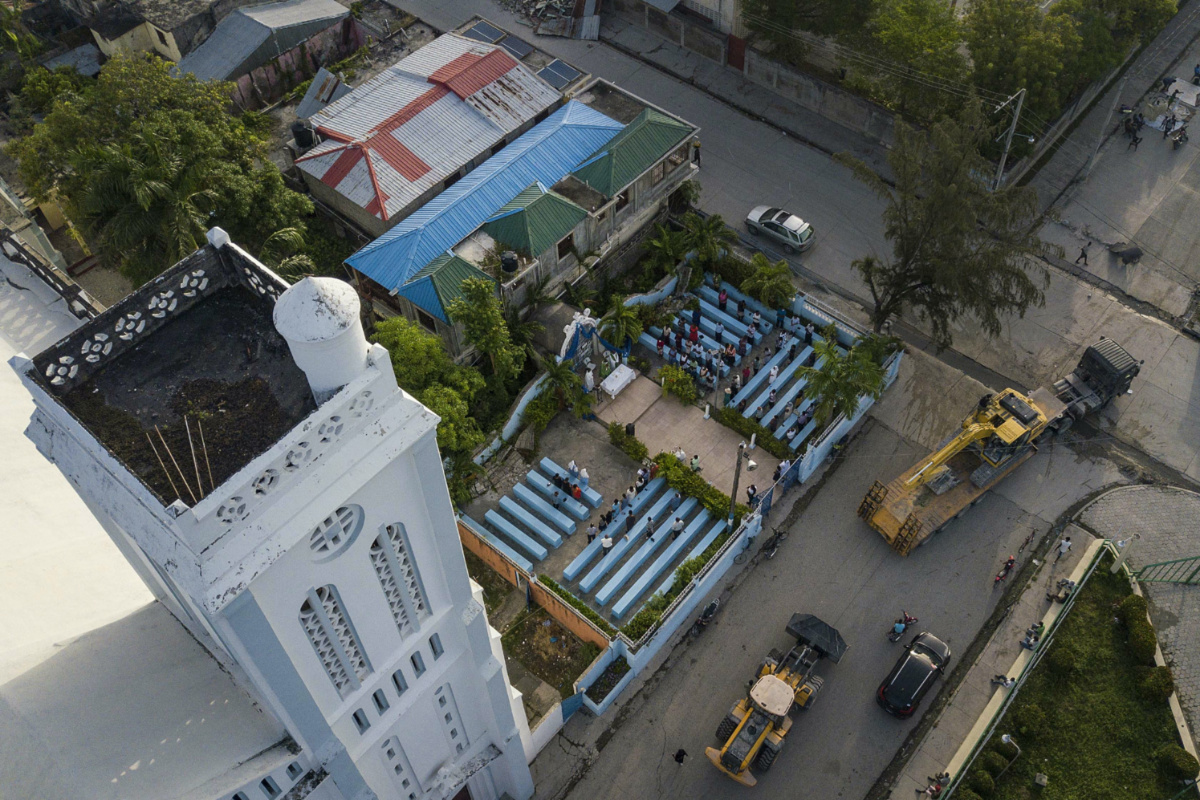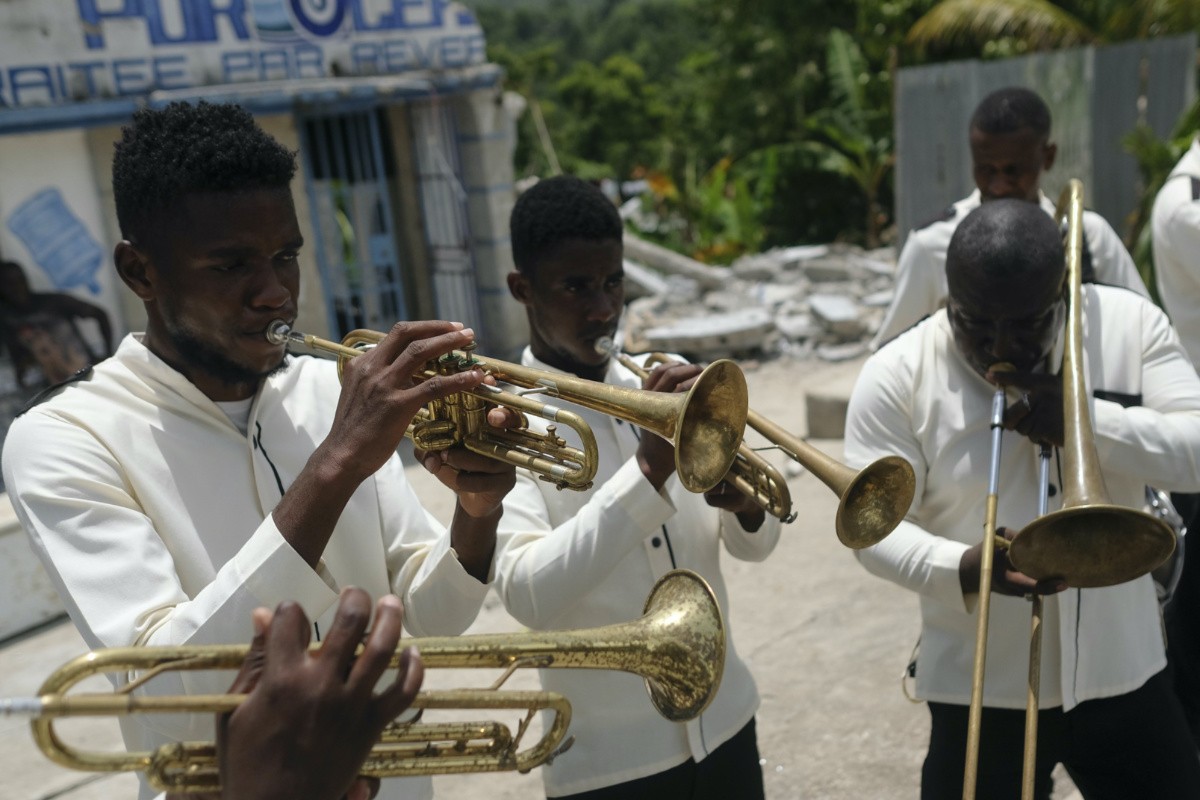Within hours of the earthquake that devastated Haiti’s Tiburon Peninsula in August, faith-based aid workers were on the scene, comforting victims and helping to pull survivors from the rubble, then providing food and water.
“The most important thing in a disaster can be human contact,” said Rev Clement Joseph, head of the state-founded Social Mission of the Haitian Churches and secretary-general for Religions for Peace-Haiti.
“Helping people to realise they are not alone, that help is on the way, that increases their reliance and their willingness to fight,” Joseph said.

Parishioners attend a Mass on the grounds next to earthquake-damaged cathedral in Les Cayes, Haiti, on Sunday, 22nd August, eight days after a 7.2 magnitude earthquake hit the area. PICTURE: AP Photo/Matias Delacroix.
Joseph, who spoke on Wednesday at Religions for Peace’s international conference in Lindau, Germany, sees religion playing a key role in confronting Haiti’s many challenges.
“Our faith has taught us to never give up. It gives us the strength to persevere,” he said. “We know that we need peace in order to develop as a country, and religious leaders can help achieve peace.”
The last several months have been catastrophic for Haiti. The 14th August earthquake left more than 2,200 people dead, followed by Tropical Depression Grace two days later. The country’s political sector has been in disarray since President Jovenel Moïse was assassinated in his home in July. The upheaval has worsened the effect of the pandemic, which has killed 22,000 people officially, but surely more in a country where a small percentage of the population has access to medical care.
When the pandemic hit, Haiti had not fully recovered from a cholera epidemic that started after a major 2010 earthquake and major hurricanes in 2010 (Hurricane Thomas) and 2016 (Matthew).
Despite billions in aid over the last generation – the 2010 earthquake alone resulted in $US13 billion in aid, predominantly from the United States and Canada – the country remains the poorest in the Americas. In its 2020 survey, the World Bank ranked Haiti 170th out of 189 countries in its Human Development Index.
Religious groups in the country are attempting to make aid more effective. In his remarks in Lindau, Joseph said that Social Mission of the Haitian Churches has trained some 12,000 young people over the last 15 years and sponsored initiatives to distribute aid through women – who, studies say, are less likely to misspend the resources.
But as important as spiritual institutions’ material help has been, Joseph said, religion also helps give locals the strength to avoid despair and survive what appears to be wave after wave of tragedy.
“Despite everything, Haiti still has its faith,” he said. “We are a very religious country.”

A band play during the funeral of Baptist church minister Andre Tessono, who was killed during the 7.2 magnitude earthquake that hit the area eight days ago, in the Picot neighbourhood in Les Cayes, Haiti, Sunday, on 22nd August. PICTURE: AP Photo/Matias Delacroix.
Not just religious, but also religiously diverse. Joseph said the country has thriving communities of Protestants and Catholics, as well as practitioners of the Bahá’í faith and Indigenous Vodou traditions. Combined, he said, there was one religious leader for about every 700 residents of Haiti. According to surveys, 85 per cent of Haitians see religion as “very important” in their day-to-day lives, among the highest levels for a secular state.
Recognising the importance of religion in keeping the country together when all other systems seemed to fail, Religions for Peace has worked to shore up Haitians’ faith. In the wake of Moïse’s assassination, Religions for Peace-Haiti issued an open letter to the people of Haiti that said the organization wanted to “invoke the soul of this great nation for resilience, tolerance, dialogue, peace, and reconciliation at a time of crisis.”
The signees of the letter – Catholic Bishop Pierre-Andre Dumas, Episcopal Bishop Oge Beauvoir, Supreme Chief of Haitian Voodoo Manbo Euvonie Auguste Georges, and Joseph – stated that they were “proud to be citizens of this country, sharing our aspiration for freedom, respect for human dignity, and dedication to foundational values and principles on which our nation was built.”






